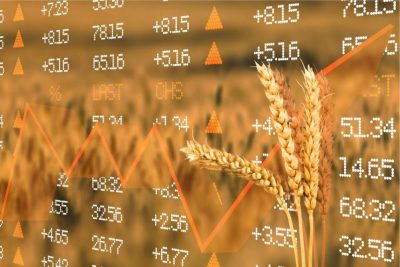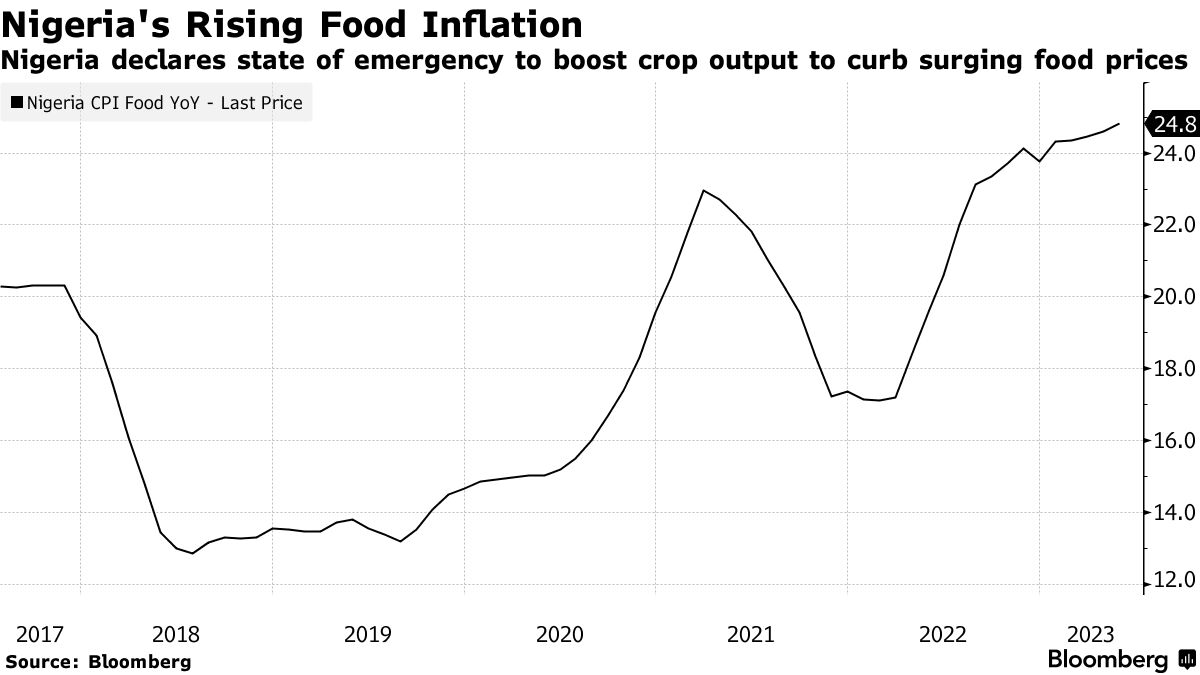Food Insecurity in Africa and the Politics of NATO Expansion. A Global Food Crisis is Looming
Russian Federation President Vladimir Putin said he was suspending Moscow’s participation in the Black Sea grain deal

All Global Research articles can be read in 51 languages by activating the Translate Website button below the author’s name.
To receive Global Research’s Daily Newsletter (selected articles), click here.
Click the share button above to email/forward this article to your friends and colleagues. Follow us on Instagram and Twitter and subscribe to our Telegram Channel. Feel free to repost and share widely Global Research articles.
***
United Nations affiliated humanitarian and development agencies are reporting that many countries across the African continent are experiencing food insecurity.
This phenomenon is related to at least three major factors: the sanctions imposed on the Russian Federation led by the United States, the United Kingdom and the European Union (EU); an inflationary spiral triggered by the impact of the pandemic; along with the worsening aspects of climate change.
The Russian special military operation in Ukraine has prompted the western countries to attempt a complete economic blockade of Moscow. Having failed to cripple the Russian economy during the first few months after the intervention on February 24, 2022, the administration of President Joe Biden has been unable to articulate a clear path to victory in Ukraine.
Parallel efforts by the U.S. State Department center around exerting political and economic pressure on AU member-states. The continental organization subscribes to a Non-aligned foreign policy which has been developing since the Bandung Conference of 1955 through the founding of a formal organization in Belgrade, Yugoslavia during 1961.
Since the majority of African governments have not responded enthusiastically to the calls by Biden to condemn Russia and join in the sanctions-regime, the White House and Congress have threatened to tighten their grip over the national economies in Africa. The Republic of South Africa has been accused by the U.S. ambassador in Pretoria of shipping arms to Russia.
Meanwhile, the Black Sea grain deal which was suggested by the AU delegation that met Putin in Sochi during July 2022 and finalized with the assistance of Turkiye President Recep Tayyip Erdogan, provided the potential for the reopening of trade in agricultural commodities produced in Ukraine and Russia. Ukrainian and Russian exports of grain and other crops to several African countries contribute immensely to food supplies.
In addition to grain, maize and other staple foods, Russia is a major exporter of fertilizer and the agricultural inputs needed in large-scale farming. Consequently, the AU member-states have a vested interest in ending the war in Ukraine and the resumption of international trade with the Black Sea region.
An article in the journal African Business says of the present situation and its impact on the continent:
“The collapse of the deal is ‘really bad news for countries highly dependent on food imports,’ says Jacques Nel, head of Africa Macro at consulting firm Oxford Economics Africa. East Africa is only just beginning to recover from a long period of drought, while Nel warns that North Africa – a region highly dependent on food imports – is also vulnerable. Egypt has been the sixth-largest importer of Ukrainian grain over the past year. Nigeria is another one of the world’s largest wheat importers and receives a quarter of its imports from Ukraine and Russia, says Debo Akande, a senior specialist at the International Institute of Tropical Agriculture. Akande warns that wheat prices are set to ‘increase astronomically’, which will have knock-on effects for the prices of other staple crops.”
Food Emergency Declared
The Federal Republic of Nigeria, the most populous country in Africa containing its largest national economy, has issued a declaration of emergency related to food supplies. The newly inaugurated President Bola Tinubu made the announcement just weeks after he assumed office in the oil-rich West African state.
After the cancellation of fuel subsidies which have kept petroleum consumer costs low in Nigeria, prices have soared in various sectors of the economy. The declaration of an emergency does not automatically address the fundamental problems in the country.
Although most reports in the western press dwell on the security challenging in Nigeria, which are many, particularly involving Boko Haram and other insurgencies operating in the northern regions of the vast country, almost no attention is paid in the mainstream media sources to the strain placed on the government resulting from the war in Ukraine and the subsequent draconian sanctions led by Washington.
The Tinubu government has adopted a policy of making more land available for agricultural production by channeling funds saved by abolishing fuel subsidies to providing incentive for farmers. Yet this pivot to greater agricultural production domestically will not occur overnight leaving open the potential for serious food insecurity in the urban and rural areas.
According to the World-Grain.com website that monitors wheat production and distribution internationally:
“Nigeria, which traditionally has procured a large portion of its wheat from the Black Sea region, is enduring severe repercussions from the Russia-Ukraine war, according to a Global Agricultural Information Network report from the Foreign Agricultural Service (FAS) of the U.S. Department of Agriculture. ‘Nigeria is spending more on wheat imports amid high global wheat prices brought on by the Russia-Ukraine war,’ the FAS said. ‘The situation has negatively impacted Nigeria’s wheat supply value chain. More importantly, official records showed a drastic reduction in durum wheat imports from Russia in 2022. Russia was one of the country’s primary sources of cheap wheat.’”
A Global Crisis in Looming
The sharp rise in food prices is not just occurring in Nigeria. Many states across the continent and other geopolitical regions are facing similar problems. Even inside the most advanced capitalist states such as the U.S. and the U.K, price increases have created food insecurity as well.
Food pantries and soup kitchens are overwhelmed by the rapid increase in demand for assistance in cities and rural areas throughout the U.S. With the expiration of the expansion of Supplemental Nutrition Agricultural Program (SNAP) benefits, a lifeline has been taken away from millions of working class, oppressed and impoverished families.
This same website, World-Grain.com, published a report during April 2022, less than two months after the beginning of the Russian special military operation in Ukraine, which predicted that:
“As the war continues in Ukraine, the impact on global agriculture will have prolonged effects, including food inflation, limited fertilizer supplies, a European recession and fundamental changes in supply chains. ‘There’s a lot that we are not talking about in terms of the overall issues that can come from the Ukrainian-Russian conflict, particularly if it extends over a year, two or three,’ said Richard Kottmeyer with FTI Consulting, Inc., during a webinar April 14 hosted by the American Feed Industry Association (AFIA). The conflict adds another layer to existing pressure on the agriculture industry from the COVID-19 pandemic and the EU’s Farm to Fork Strategy, which aims to reduce the environmental and climate impact of production. Food inflation is likely to hit levels not seen in 20 plus years, Kottmeyer said. ‘If the war ended today, we would have food inflation widely for three years,’ he said. ‘That’s significant. As the war continues, food inflation and the number of years continues to get worse.’… With the food inflation that currently exists and the likelihood it will get worse, there is severe pressure on fundamental stability in northern and west Africa, he said. ‘The Ukrainian conflict is likely to lead to other conflicts within the next 24 months,’ Kottmeyer said. ‘That could put severe pressure on any number of specialty commodities, and agriculture trade in general.’”
The Biden administration is seeking to extend its tenure in office for another four years in the aftermath of the 2024 elections. Nonetheless, there are serious concerns on the part of the majority of the electorate in the U.S. over the handling of the war in Ukraine.
Polls indicate that the primary issue on the minds of voters is the economy. While the administration praises the less than 4% jobless rate, tens of millions are struggling to pay rents, mortgages, education bills, energy costs and food.
The effects of climate change can be seen daily in the U.S. and Canada where drought, excessive heat, dangerous air quality, tornados, floods and wildfires are creating hazardous conditions for public health and food production. However, the Biden administration appears to be solely focused on undermining and weakening the Russian Federation, the People’s Republic of China and other perceived adversaries of U.S. imperialism.
People in the U.S. can only hope for relief when the support by the government to carry on the war in Ukraine has halted. The much talked about spring and summer counteroffensive in Ukraine have been an abysmal failure.
Despite the allocation of approximately $115 billion in military and other assistance to Ukraine, much of the ammunition, tanks, armored vehicles and missile launchers have been destroyed by the Russian military forces. At present, the Russian army has begun offensive operations in several areas along the frontlines.
Ending the Ukraine war has implications far beyond the battlefields. Eliminating the Pentagon budget is a matter of the survival and sustainable development of humanity.
*
Note to readers: Please click the share button above. Follow us on Instagram and Twitter and subscribe to our Telegram Channel. Feel free to repost and share widely Global Research articles.
Abayomi Azikiwe is the editor of the Pan-African News Wire. He is a regular contributor to Global Research.


